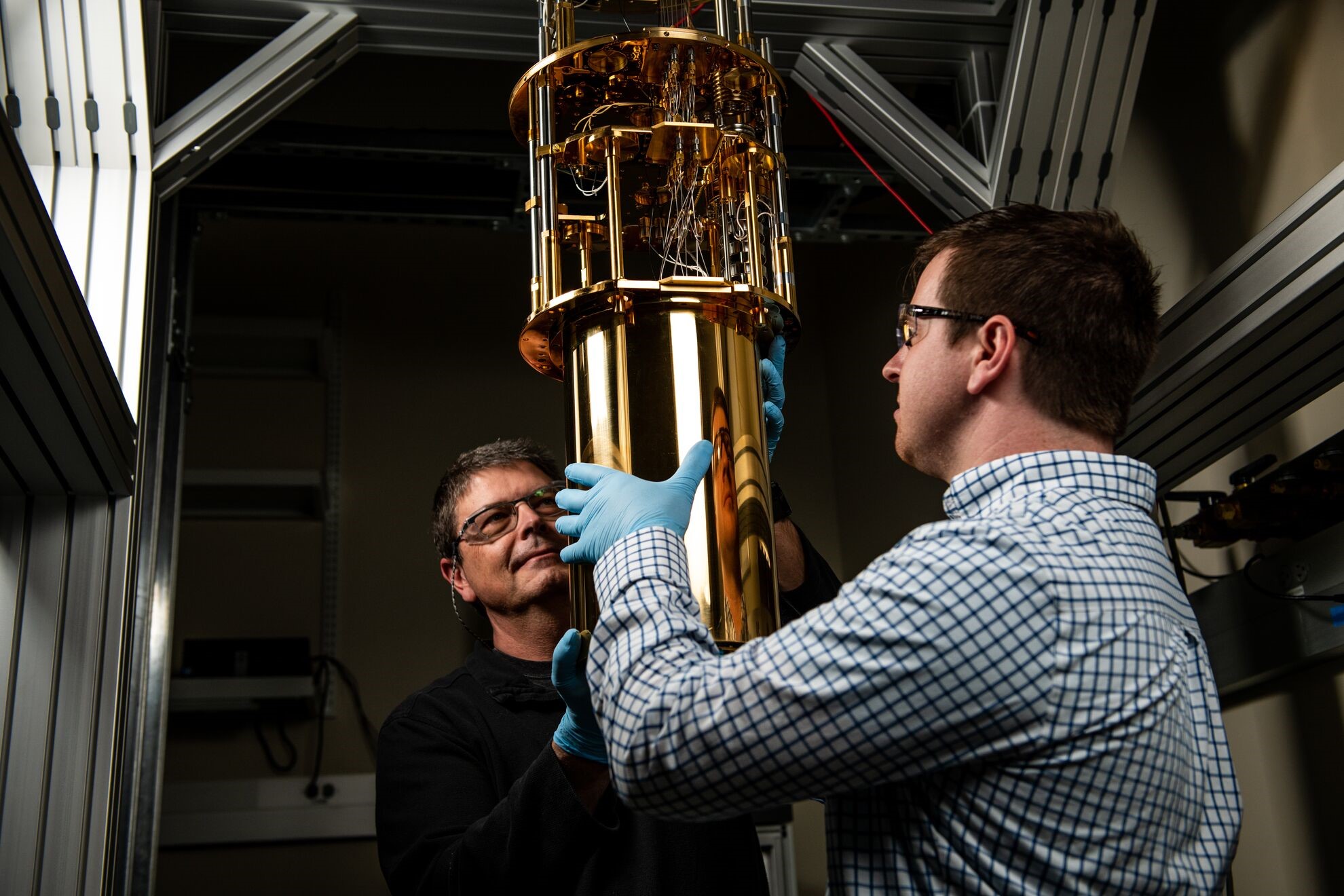CDI Project: Dynamics of Quantum-Influenced Material Properties
Return to Functional Materials Use Case

PI: Ray Bunker
Project Team: Alan Albrecht, Maurice Lonsway, John Orrell, Cory Overman, Francisco Ponce, Nathaniel Smith
Project Term: October 2018 to September 2021
Key Science Questions:
- How are the dynamics of energy flow through bulk materials and across material boundaries affected by defects at very low temperatures where quantum effects dominate?
- What are the chemical dynamics associated with temperature cycling that contribute to variation in the behaviors of materials and devices operated at very low temperatures?
Project Description: The objective of this project is to establish a new capability at PNNL to study materials and devices at ultra-low temperatures. PNNL’s expertise in materials science, spectroscopy, and molecular imaging will be extended into the ultra-low-temperature regime, utilizing the lab’s first dilution refrigerator to investigate the chemical dynamics of current and future material systems and device architectures with unique quantum properties. These studies will help answer fundamental questions related to factors that limit and/or alter quantum behavior of materials applicable in several fields of basic research, including quantum information science (QIS), basic energy sciences (BES), and high-energy physics (HEP).
The quantum properties of materials that make them attractive candidates to be integrated into novel devices manifest themselves at extreme scales, such as in low-dimensionality, atomically precise structures, and at ultra-low temperatures. Physical properties based on classical descriptions of materials give way to properties that are dominated by quantum effects.
It is important to understand how dynamical factors influence the ability to tailor materials to meet the challenging new requirements of devices such as qubits or quantum-engineered thin-film sensors.
The project team is working to generate experimental results that can be combined with theoretical simulations and data science to improve our understanding of the dominant dynamics impacting phonon transport in materials and across material boundaries at millikelvin temperatures (or approximately -273 °C).